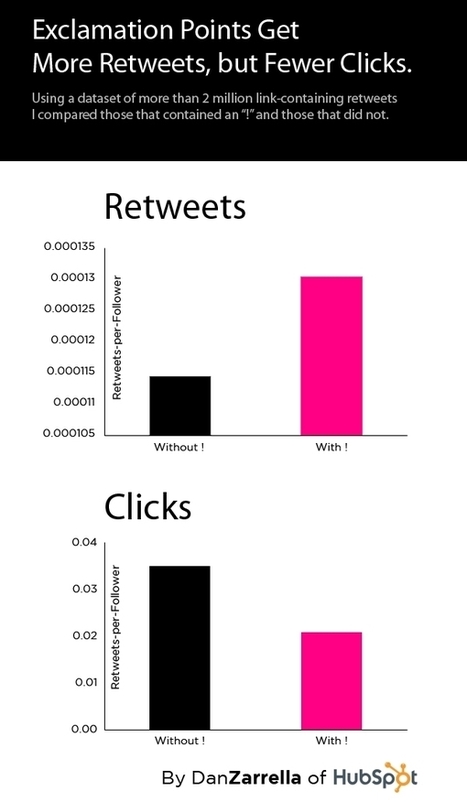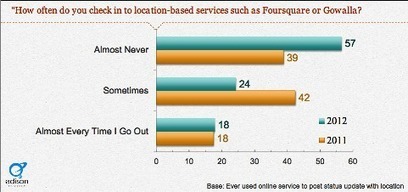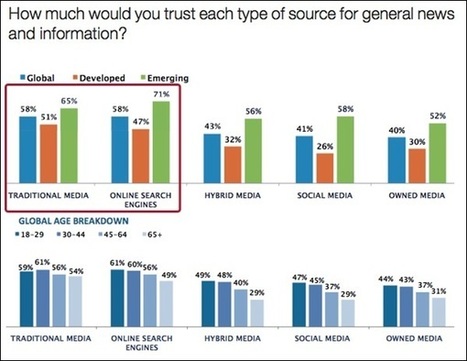This is interesting. It turns out that something as simple as whether or not your tweet has an exclamation mark in it can determine how many retweets it gets. At least that’s according to research conducted by social media scientist Dan Zarella.
The research, he says, was conducted in response to a tweeted question from search guru Rand Fishkin and looks at the relationship between exclamation points in tweets and retweets and clicks.
Zarella used a dataset of more than two-million link-containing tweets sent by accounts with at least 1 000 followers. His findings suggest that tweets with exclamation marks got more retweets-per-follower, but fewer clicks-per-follower. That means it’s probably not a bad idea to include an exclamation mark if you’re looking to broadcast straightforward information. But if you want people clicking on your tweet, or are sharing a link in it then it’s probably best to exclude the exclamation mark, no matter how excited you are about it....



 Your new post is loading...
Your new post is loading...












Dan Zarella always does interesting research!!! ;-)